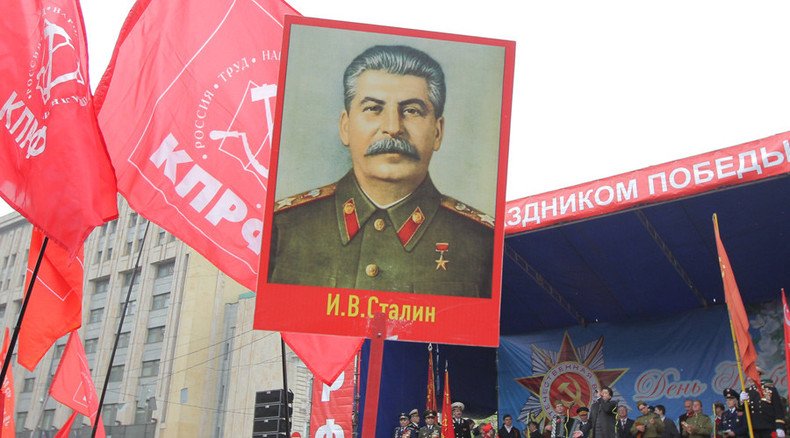‘Extremism’: Russia reviews code for rehabilitation of Stalinist crimes

The deputy head of the upper house’s Committee for Constitutional Law has prepared and drafted the bill that would ban any public attempts to justify the crimes of the Stalinist regime and list any works on this subject as extremist materials.
“The historical realities of the Stalinist era that is currently being promoted among the population is idealized, one-sided and doesn’t correspond to any historical realities,” read the appendix to Konstantin Dobrynin’s (Arkhangelsk Region) bill. The senator further suggests that the situation can be improved if all works containing justification of Stalinists’ crimes are legally classed as extremist materials.
“Stalinist repressions were unprecedented in scale and concerned the Soviet Society as a whole,” Dobrynin said in comments to TASS.
READ MORE: Activists decry Russians' increasing sympathy for Stalin
At the same time Dobrynin says his bill should only apply to crimes already listed as such in official documents and not to the disproval of theories that accuse Stalin of genocide or crimes against humanity. Such arguments must remain under the protection of constitutional norms guaranteeing the freedom of speech and expression, the draft reads.
The document also seeks to ban the naming of name various topographical and geographical items (including Metro stations) after people who were complicit in the crimes of the Stalinist regime. However, it allows the places and objects that already bear these names to retain them after the bill is passed into law.
According to Russian NGO Memorial, which specializes in the history of the Stalinist purges, about 720,000 death sentences were passed in the Soviet Union in the 1930s. The group claims 30,000 people were executed in Moscow alone during the ‘Great Terror’ of 1937 and 1938.
In the beginning of 2015, activists from Memorial several times expressed concern over the fact that public opinion polls were showing a growth in the popularity of the late Soviet dictator. Memorial also criticized a proposal to erect a monument to Stalin in Moscow and to rename the city of Volgograd as Stalingrad.
Meanwhile, some forces on the left side of the political spectrum, led by the Communist Party of the Russian Federation, were requesting the city be renamed, and that Stalin’s name and a monument be given to a Moscow square.
READ MORE: Communists want Stalin’s name back on Russian map
The leftists emphasized that the Battle of Stalingrad played a decisive role in the war against Nazi Germany and the return of the historical name to the city would be the best way to acknowledge the importance of this event. Similar suggestions were also made in 2013, when Russia celebrated the 70th anniversary of the battle, however the renaming was rejected both by the people and the authorities.












